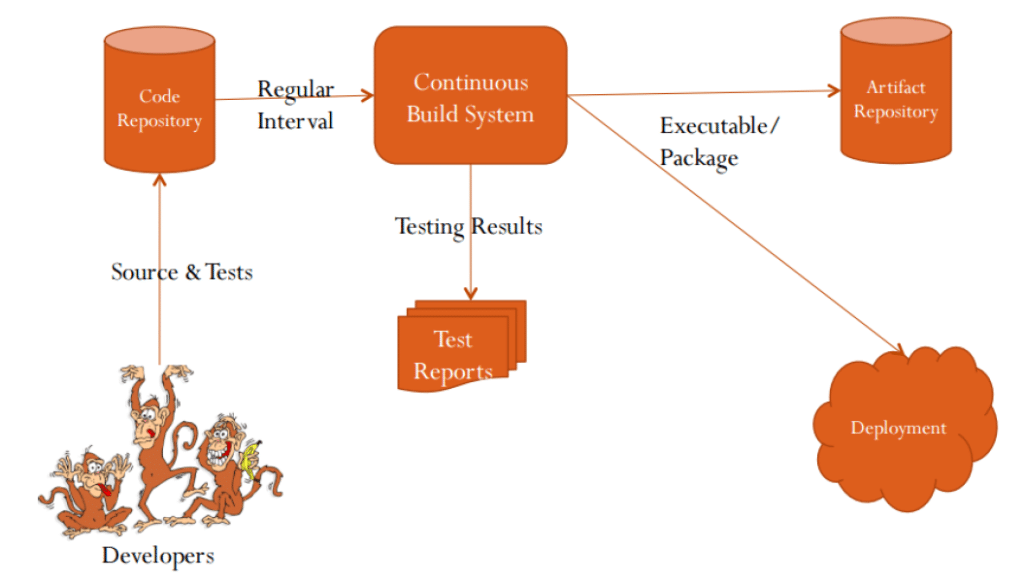Introduction
- Jenkins is an open source continuous integration tool written in Java.
- Jenkins is one of the most important tools in DevOps.
- Jenkins provides continuous integration services for software development.
- Commonly used Jenkins plugins are Git, Amazon EC2, Maven 2 project, HTML publisher etc.
- It is a server-based system running in a servlet container such as Apache Tomcat.
- The reason Jenkins became so popular is that of its monitoring of repeated tasks which arise during the development of a project.
- Jenkins, a continuous build tool, automating the build, artifact management, and deployment processes
Workflow

What is Continuous Integration?
In Continuous Integration after a code commit, the software is built and tested immediately. In a large project with many developers, commits are made many times during a day. With each commit code is built and tested. If the test is passed, build is tested for deployment. If deployment is a success, the code is pushed to production. This commit, build, test, and deploy the code is a continuous process and hence the name continuous integration or continuous deployment.

CI (Continuous Integration) Tools
Code Repositories
SVN, Mercurial, Git
Continuous Build Systems
Jenkins, Bamboo, Cruise Control
Test Frameworks
JUnit,Cucumber, CppUnit
Artifact Repositories
Nexus, Artifactory, Archiva
Introduction